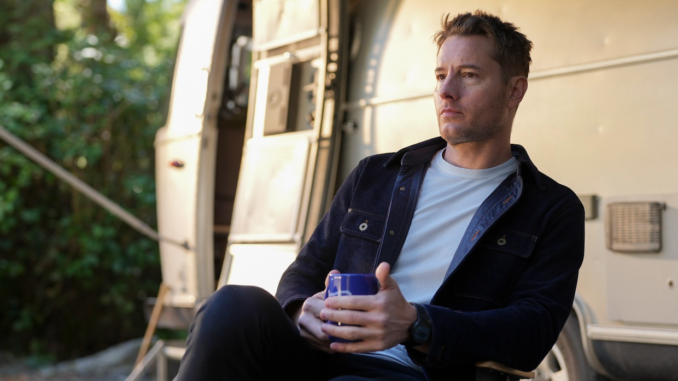
‘Tracker’ Shines When Its Central Element Takes a Backseat
With the first season of Tracker now over, it’s clear that the “extra” role of Colter Shaw is exactly the kind of role Justin Hartley was born to play. With some exciting action moments inspired by his time on Smallville to some dramatic character arcs that have a charm reminiscent of his work on This Is Us, there’s plenty of reason to believe that Tracker is, in many ways, the pinnacle of Hartley’s career to date. The actor successfully adapted the character of Jeffrey Deaver to the screen and gave him a new life on television. But there’s something special about Tracker that makes this show stand out: the wonderful balance between the show’s standalone adventures and the mysterious history of Colter Shaw.
‘Tracker’ excels at balancing standalone storylines and mythology
The longer a procedural goes on, the harder it becomes to balance the overarching plot with the specific events of standalone episodes. In the case of many works (and this is especially true of genre shows like The X-Files or Supernatural), elements from the show’s larger mythology end up bleeding into what would otherwise be a standalone story. In the streaming era of episodic television, finding weekly works that tackle new concepts and/or ideas each episode rather than drawing from the same theme can be a challenge. Tracker has been compared to shows like Reacher in the past because of its basic premise, but that comparison ultimately falls short because the Prime Video series takes a Jack Reacher novel and stretches it out over an entire season. Meanwhile, the CBS drama takes us to a new location (and a new mystery) every episode. And that’s part of why it works so well.’

As an anti-procedural of sorts, Tracker’s weekly adventures are consistently engaging and reveal more about Colter Shaw as a character than anything we learn about his past through flashbacks or family dialogue. That’s not to say that the long-form storylines aren’t important, they certainly are, but Tracker wisely follows the unwritten rules of network television by stretching these ideas out over time and letting fans digest them over a longer period of time. Of course, that also applies to the characters themselves, as it gives Colter time to digest any new information before facing it head-on. For Tracker, that time is crucial. When compared to many of the well-produced serialized shows out there, like Reacher or Jack Ryan, this might make Tracker sound boring on the surface, but that’s not the case. Even in episodes like “Into the Wild,” which have nothing to do with the show’s main plot, Colter’s near-fatal confrontation with Las Vegas mafia henchman Peter Stormare makes the episode as lively and engaging as any other. What makes Tracker interesting isn’t the complicated plot, but Colter Shaw’s character.
Sometimes, Colter’s cases overlap a bit with his messy family history, and when that happens, it’s always done with flair. In the case of the Season 1 finale, “The Storm,” this happens because of a family friend, Lizzy Hawking (played by Hartley’s former This Is Us co-star Jennifer Morrison), whose mother appears to have had an affair with Colter’s father, Ashton (Lee Tergesen). But while Lizzy reveals some dark family secrets by the end of the episode, most of the plot never touches on them. Colter’s main focus throughout the series is to find Lizzy’s missing daughter, and that’s exactly what he does. Here, with the first season finale, Tracker establishes itself as a case-based series first and foremost. The idea of Colter aimlessly wandering America in search of loved ones and other people’s treasures is what makes the show so compelling. As a result, the mysterious mythology often takes a backseat. What might have been industry standard over a decade ago is now almost quaint, but it’s something Tracker does very well. While we meet Colter’s mother, Mary Dove Shaw (Wendy Crewson), early in the series, his siblings are largely strangers until the Season 1 finale. In “Beyond the Campus Walls,” we’re introduced to Colter’s sister, Dory (Melissa Roxburgh), and in “Off the Books,” former Supernatural star Jensen Ackles is revealed to be the grown-up version of his brother Russell. Both episodes are fantastic, and each one delves a little deeper into the Shaw family history that Colter has yet to fully uncover. There’s a lot to love about these episodes because of the secrets of the Shaw family that are discussed here. The mystery surrounding their family is fascinating.
